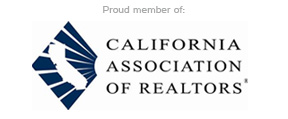How To Stop The Foreclosure Process

There are a myriad of ways that unforeseen hardships can change the joy of owning a home into an incredible burden. Maybe you've lost your job, or have unexpected medical bills beginning to pile up, or your monthly mortgage payments have increased beyond your current budget. No matter what the cause of your troubles, ignoring the problem won't help, it will only make it worse. You must act quickly to resolve the issue.
The following are a few examples of how to stop a foreclosure on your home:
1. Look for Other Sources - Most homeowners don't realize they have a variety of resources that can aid in making mortgage payments to avoid foreclosure. Consider the income created by unemployment or disability insurance and your savings as possible cash-flow resources. Other examples include slashing the household budget by trading in expensive items like cars, boats, and motorcycles for cash. Even retirement funds can be used, but beware that many people with access to their retirement funds can be penalized for early withdraw and face increased income taxes.
2. Contact Your Lender - If you have reviewed all possibilities of creating cash-flow to pay your mortgage, then it's time to reach out to your lender. Do this as soon as possible! Your ultimate goal in contacting your lender is to create an agreement that will alter your mortgage so that foreclosure proceedings can be stopped before they are finalized.
3. Review the Options - After contacting your lender, or in some cases the servicing company that handles the loan for an investor, you may have other options available. Typically lenders are not required to make adjustments to your loan, but many will consider it a viable option--one that benefits the lender and you and can include refinancing.
Possible options to discuss with your lender include:
- Deed in Lieu of Foreclosure - In this option, your lender may accept the return of the title to your home, but beware that the lender may still sue for loss and report any uncollected funds due to loss to the IRS as taxable income to you. This option may have negative effects on your credit report.
- Claim Advance - If you have a private mortgage lender, they will often provide a cash advance to bring your loan payments up to date. Sometimes this money is interest free and may not have to be repaid for years.
- Re-Amortization - In this option the payments you have missed are added to the balance of the loan, making your account current. Your debt will increase and your monthly payments will be higher unless the lender also agrees to extend the term of the loan.
- Short Sale - Considered by many one of the best options available to avoid foreclosure, the short sale is an increasingly popular option. In this option, the lender accepts less than what you owe on the property, relieving the homeowner of debt. Lenders are often willing to accept a short sale because it greatly reduces the expense and time involved in foreclosure proceedings. In most cases, a short sale does less damage to your credit than a foreclosure. A qualified REALTOR® will be exceptionally helpful in completing the short sale process with you.
One note of warning, beware of any company claiming that they guarantee they can stop any foreclosure no matter what you owe. The Federal Trade Commission recently compiled a list of warning signs that a "foreclosure fixer" company may be a scheme. Those warnings include any company that requires you to pay for services upfront, tells you to send mortgage payments to it directly, or asks you to turn over the property deed, or tells you to avoid contacting your lender directly.
|








